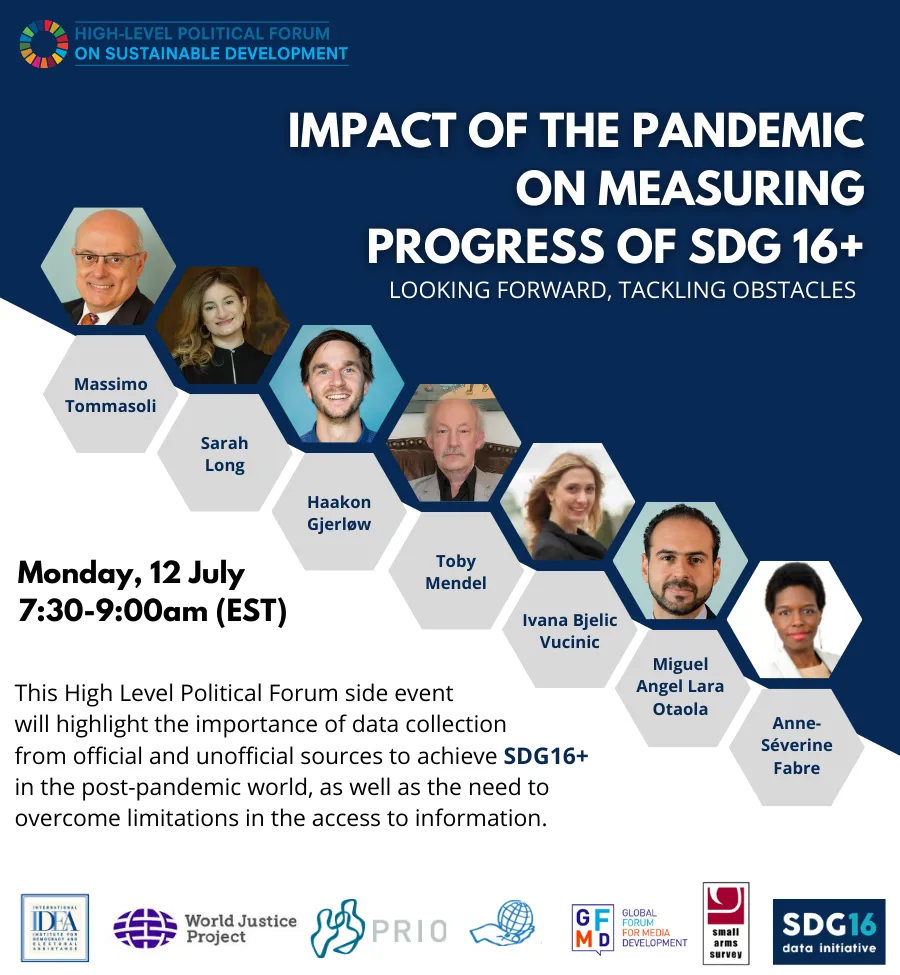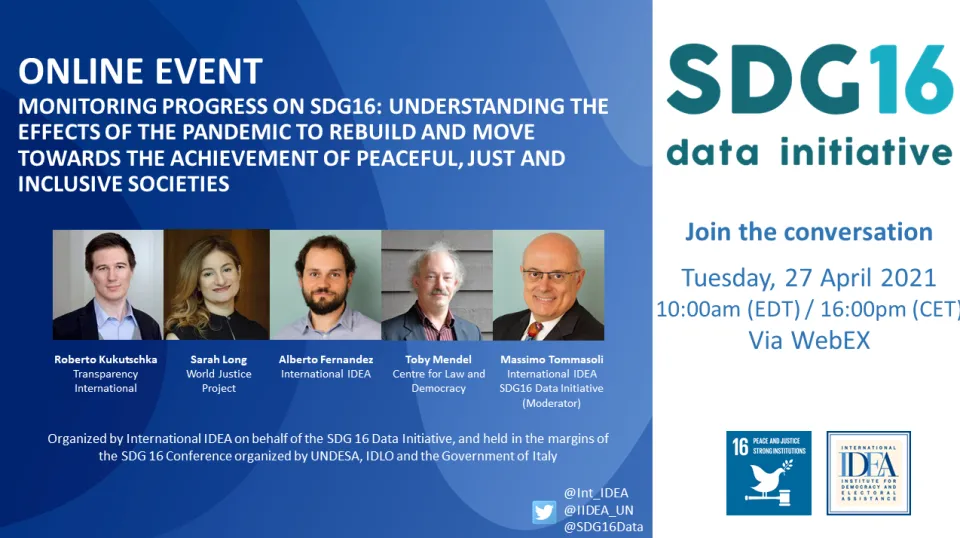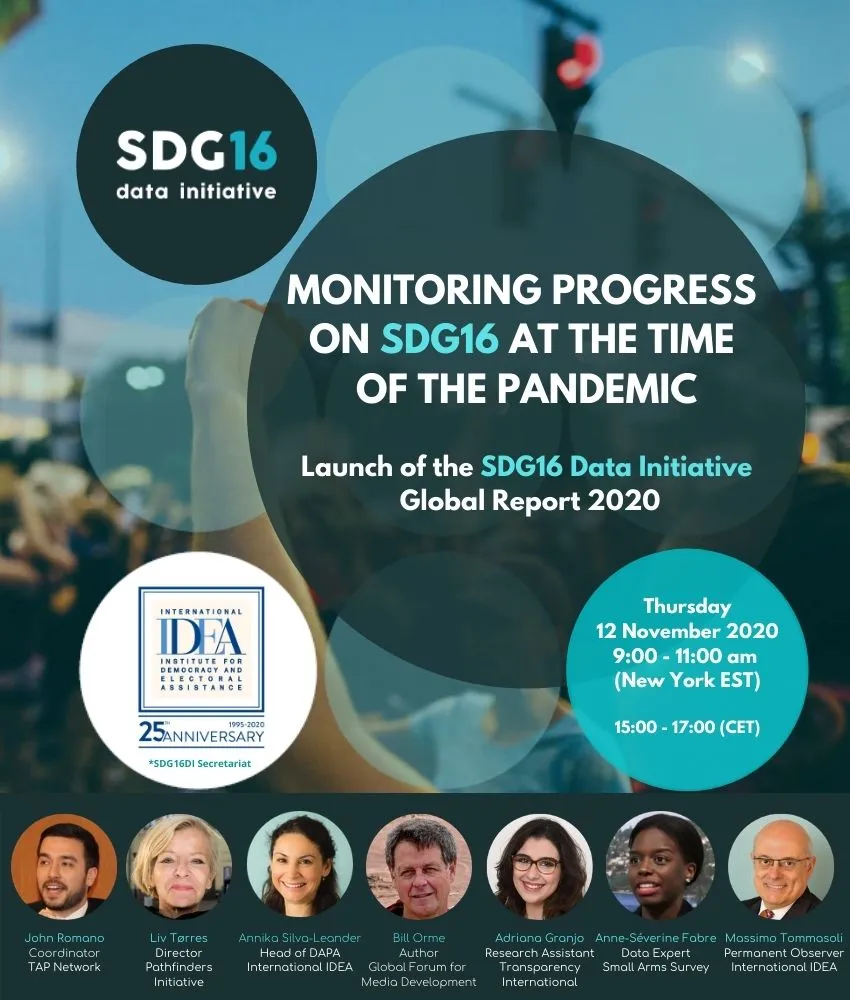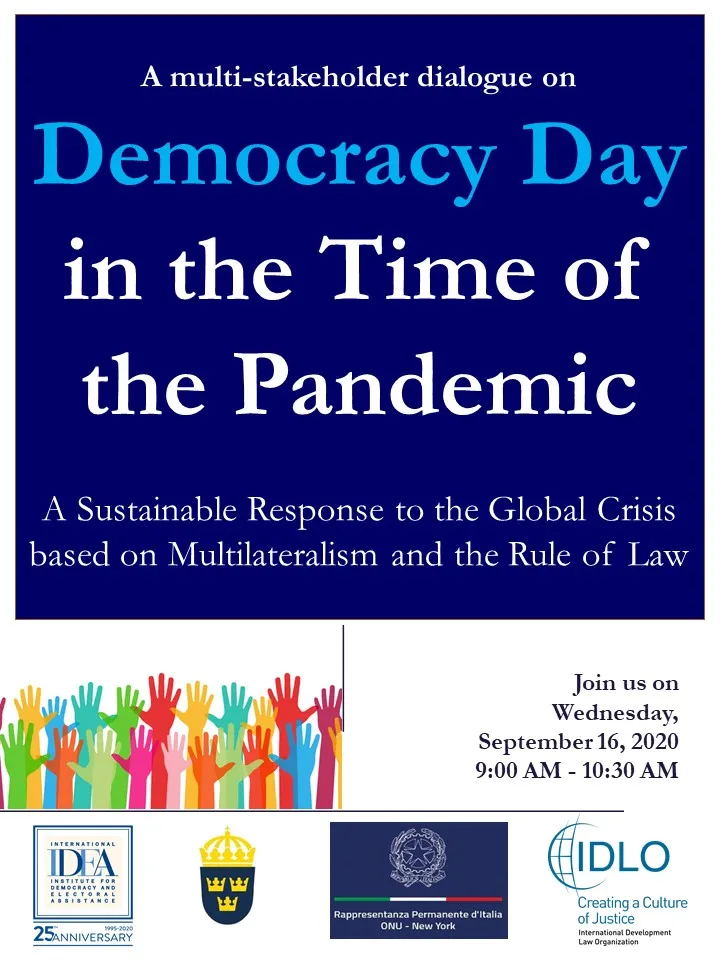Reinventing the role of international and regional organizations in promoting peaceful, just and inclusive Institutions in times of crisis: What was done and what Is next?
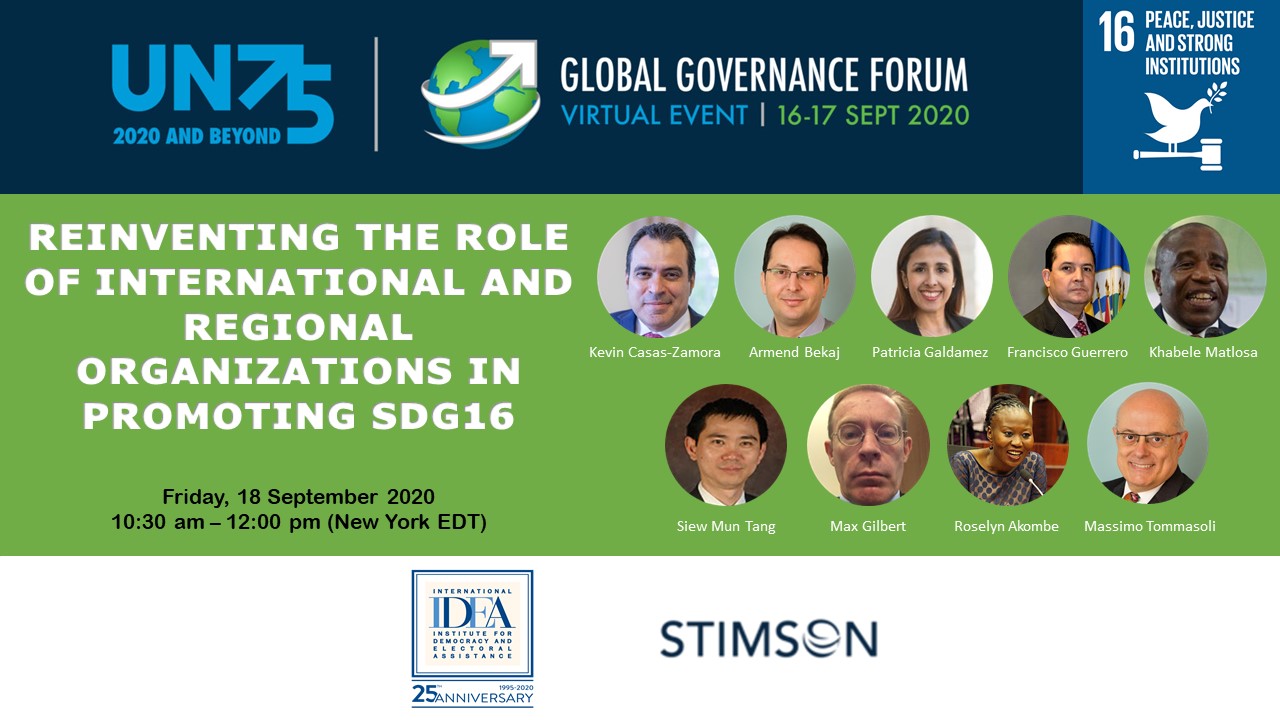
2020 has been a year of significant challenges for the world as the COVID-19 pandemic was recognized as a global enemy that the world was not ready to tackle. Each region of the world was gradually but steadily affected by this health crisis, with still to be determined economic, social and political effects, that will have severe implications on the quality of democracies worldwide, as well as on the achievement of the Agenda 2030 for Sustainable Development, and specifically on the broader SDGs framework.
The role of multilateral global and regional organizations and their ability to work with their Member States will be critical to countries as they address the global health crisis and economic development fallout. Already we are witnessing the grim economic and social forecast for many countries, impacting millions of livelihoods and placing additional stress on countries in development. It is at this moment when multilateral and multi-stakeholder organizations must work together to develop and provide coordinated solutions.
Global and Regional Organizations are recognized for their capacity and for being uniquely positioned to inform, guide and provide development assistance to their Members. This has become even more evident during this critical moment in history. International organizations such as the United Nations and its agencies, International IDEA and the Community of Democracies, have strived to make a global assessment to better understand the challenges and opportunities of the pandemic, reinventing themselves and strengthening their support through the development of reliable data, policy analysis of the highest quality, implementing development projects in the field using relevant technological resources, and deploying their convening power to enable platforms for dialogue and engagement for cooperation.
Regional institutions like the Organization of American States, the African Union, the Council of Europe, the European Commission, ASEAN and the Pacific Islands Forum, are finding alternative ways to remain close to their Members through the development of policy-oriented guidelines to advance regional goals. Some have deployed missions to some of their Member States, either for Electoral Observation Missions or for technical assistance and capacity building, to continue pushing state capacity and development, despite the challenges proposed by the current health crisis.
We have identified that it is not a question of how strong a political system is, but a matter of state capacity, what makes a difference in terms of succeeding in the battle against the novel Coronavirus. In this sense, and focusing on the key elements of SDG 16 on Peaceful, Just and Strong institutions, we are proposing an open conversation with experts from key regional and global organizations on what has been the main efforts deployed by them to support their Members and their key partners in their respective regions, and to make an estimation as of what will be the outcome of the pandemic and what should be the way forward, understanding that partnerships and better coordination is instrumental to enable effective and efficient multilateral action.
2020 also marks the 75th anniversary of the United Nations, becoming a critical year to make an analysis on how can the global multilateral system work better to respond to new raising challenges around democratic sustainability, development, good governance and rule of law; specially in cases of global emergency.
|
PURPOSE
|
The Stimson Center in Washington, D.C., is commemorating the 75th Anniversary of the United Nations hosting the UN75 Global Governance Forum, which seeks to promote a more inclusive and effective United Nations through dialogue and recommendations that better harness the ideas, capabilities, and networks of both state and non-state actors for achieving the UN’s commitment to peace, sustainable development, human rights, and a stable climate.
In this framework, and considering the already traditional relationship that exists among the members of the Inter-Regional Dialogue for Democracy (IRDD), we coincided that it would be timely to facilitate a conversation on the key challenges and opportunities that the COVID-19 pandemic has presented at the regional level, and take stock of what was done until now; learn from those experiences, and try to make an estimation of what is next to ensure democratic sustainability and development from an inter-regional perspective.
We are looking at developing policy recommendations on the way forward, based on institutional experiences, aimed at enhancing inter-regional collaboration and exchanges of best practices, as well as to harness ideas on how to better align global and regional efforts to support key actions towards the achievement of the SDGs, despite the current global health crisis.
- To discuss and take stock on results achieved and challenges still facing implementation of Goal 16+, and the effects of the COVID-19 pandemic.
- To present the outcomes of global, regional and inter-regional initiatives that aimed at gathering best practices, challenges and opportunities, as well as policy recommendations towards the advancement of SDG 16+, under the current health crisis.
- Explore and discuss how global and multi-stakeholder initiatives could further collaborate and partner with the United Nations and civil society to ensure implementation of Goal 16+ in the coming years.
- Analyze and propose ideas on how to overcome the negative impact of the COVID-19 pandemic, and how to uplift multilateral action as an instrumental resource to bolster development in the coming years.
|
EXPECTED OUTCOMES
|
The results of the discussion will be consolidated in a brief report that will become available in the following weeks after the meeting, aimed at providing recommendations on how to improve implementation of Goal 16+, and drive responses to support democracy, human rights and good governance, in light of the current pandemic.
These recommendations will become the basis of further discussions with key stakeholders, including Member States to help ensure an effective and a comprehensive approach to the implementation of SDG 16, considering the aftermath of the health crisis.
|
AGENDA
|
10:30-11:20a.m. Panel: Reinventing the Role of International and Regional Organizations in Promoting Peaceful, Just and Inclusive Institutions in Times of Crisis: What was Done and What is Next?
Moderator
- Massimo Tommasoli, Permanent Observer for International IDEA to the United Nations
Welcoming Remarks
- Kevin Casas-Zamora, Secretary-General, International IDEA
Panelists
- Armend Bekaj, Senior Programme Officer, Democracy Assessment and Policy Analysis Unit, Global Programmes, International IDEA
- Patricia Galdamez, Senior Advisor to the Secretary-General, Community of Democracies
- Francisco Guerrero, Secretary for the Strengthening of Democracy, Organization of American States (OAS)
- Khabele Matlosa, Director for Political Affairs, African Union Commission (AUC)
- TANG Siew Mun, Director of the Political & Security Directorate, ASEAN
- Max Gilbert, Focal Point for the SDGs and Senior Advisor for External Relations, Council of Europe (CoE)
- Roselyn Akombe, Chief of Policy for Regional Organizations and Guidance, United Nations Department of Political and Peacebuilding Affairs (DPPA)
11:20-11:50a.m. Q&A
* The event will be livestream on International IDEA's YouTube Channel.
